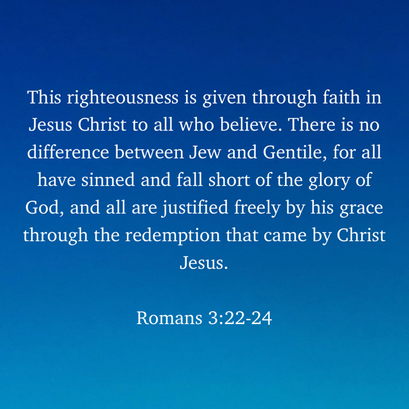|
Good morning!
We're so happy you decided to join us today!
When we meet in person, we share our joys and concerns together. Take some time to consider the past week, and the worries or celebrations you may have. If there are any you would like to share, you can add a comment below. When you are ready, use the prayer below from Presbyterian Disaster Assistance to get started.
Living God, our refuge and strength, even the wind and sea obey your voice.
Put the wind back in its place, and say to the sea: Peace! Be still! Fill us with great faith, and save us from the surging water, so that we may tell the good news of your saving love; through Jesus Christ, our hope in the storm. Amen.
Today's lesson is on Ezra 6:1-12.
A few weeks ago, we had a lesson about Ezra and the Law. The introduction to that lesson walked through the history of the Babylonian captivity of the people in the southern kingdom of Judah. The Babylonians were eventually conquered by King Cyrus of Persia (reigned 539 - 530 BC), and Cyrus allowed the return of the captives.
Under the leadership of Zerubbabel, the exiles returned to Jerusalem and Judah (Ezra 2:1-2). In 535 BC, two years after the exiles returned, reconstruction began on the temple in Jerusalem. However, the reconstruction was delayed several times by local opposition and regional authorities (Ezra 4:1-5, 24). Today's passage comes as a response to questioning from Persian officials named Tattenai and Shethar-Bozenai. They had questioned Zerubbabel and the local leaders about the authority they were granted to rebuild the temple (Ezra 5:3, 9). The Jewish people said their authority came from God and King Cyrus. A letter was sent to inquire on the nature and authority of Cyrus's decree. At this point, a new king had replaced Cyrus. The ruler was King Darius I (reigned 522-486 BC). Our lesson text contains both Cyrus's decree, and a response from Darius to the Persian officials. I. Conducting a Search Archaeological remains of Persian archives reveal detailed reports of taxes, expenditures, and local government occurrences throughout the empire. Many cities had records of this kind. A search was conducted around the empire to find a record of Cyrus's original decree. It was found in the city of Echatana, which was about 285 miles northeast of Babylon, and served as the summer palace for Persian royalty. II. The Content of the Decree Verses 3 - 5 are the contents of Cyrus's decree. It expands on the directive given in Ezra 1:2-4. The Jewish exiles had been given permission by King Cyrus to return to their homeland. Further, they were to rebuild the temple. The decree gave dimensions for the new temple, different from the originals. It also said that the royal treasury would pay for reconstruction costs. Further, Cyrus's decree said articles stolen from the temple by Nebuchadnezzar and taken to Babylon would be returned. Our book notes that these articles would need to be reconsecrated before being taken back to the temple. The presence of these items in the newly restored temple represented the restoration of Israelite life as the holy people of God. At the end of Cyrus's decree comes a response from King Darius. The Trans-Euphrates refers to the area west of the Euphrates River and east of the Mediterranean, one province or satrapy of the Persian empire. The letter is directed to the officials of the area. While Tattenai was the governor of the province, the Jews had their own governor and elders. They were able to respond to internal problems in the community, while also maintaining good relationships with the Persians. The rulers of the Trans-Euphrates province were not to interfere with the Jewish people. In going along with Cyrus's decree, the taxes of the province should be used to rebuild the house of God. This action reflected a larger policy to restore and provide for local temples and cults in the empire. Darius's financial generosity highlighted his desire to honor the temple, whether or not he believed in the temple's God. Additionally, the officials of Trans-Euphrates had to provide the resources needed for sacrifices in the temple. This was pretty self-serving on the part of Darius. Properly offered sacrifices were pleasing to God. If the Jewish people offered proper prayers for the king and his sons, the king could benefit. Our book notes that leaders asking that their constituents pray to their Gods was not inconceivable. Greek historian Herodotus described how Persians would offer a prayer for the king while offering sacrifices to their pagan gods. The practice continued through the New Testament era. Sometimes rulers recognized Israel's God as a supreme God. As a result, Israel fulfilled the promise that they would be a blessing to Gentiles. The end of Darius's decree has a warning. Anyone who did not follow the commands set forth would be killed, and their home destroyed. This may seem like a lot to us. However, it would not have shocked ancient audiences. Darius ended his proclamation with an acknowledgement of God and the protection of all under his domain. This follows an ancient Near Eastern tradition that taught that the gods would protect that which was considered precious and divine. While Darius was probably not influenced by ancient Hebrew literature, this also shows up in the Psalms. The psalmist warned against the "kings of the earth ... and the rulers" who "band together against eh Lord and against his anointed" (Psalm 2:2). The Lord would "break them" and "dash them to pieces" (Psalm 2:9). Those who would go against the Lord and his intentions would be destroyed. Those who would stand against and defile the temple of God would suffer destruction.
Conclusion
The sovereignty the Jews gained under Cyrus and maintained under Darius was short-lived. In the centuries that followed, the Jewish people experienced many years of occupation. However, in that specific season under the reign of and support from Darius, the Jews survived and even flourished as they resettled their homeland. Especially in difficult circumstances and trying situations, God calls his people to be faithful to his purpose for their lives. That Cyrus and Darius, two Gentile leaders, allowed for the resettlement of Jerusalem and the reconstruction of the temple showed the surprising ways God provides for his people. Prayer God of Heaven, you are the creator of all good things. You bring life and joy, laughter and healing, peace and plenty. You provide for your people in unimaginable ways. Surprise us! Show us how we might follow you in ways unimaginable. In Jesus' name. Amen. Questions for Discussion
Benediction
This week's benediction comes from the New International Version.
Next week's lesson will be on Ezra 6:13-22.
0 Comments
Leave a Reply. |
AuthorWe are a small, rural Presbyterian church in southwestern Pennsylvania. Archives
July 2024
Categories
All
|



 RSS Feed
RSS Feed